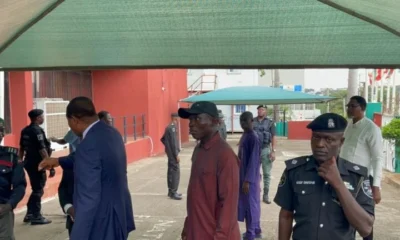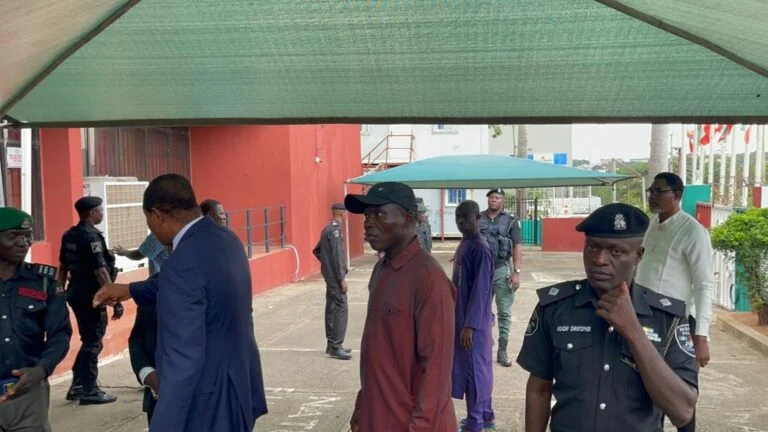Despite the commencement of petrol production by two major refineries in Nigeria in the last three months, oil marketers have continued to import and distribute the product nationwide.
According to The Punch, marketers imported “2.3 billion litres” of petrol between September 11 and December 5, 2024.
The continued importation of petrol is contrary to a public announcement by some groups of marketers who earlier stated their intention to halt petrol imports and focus on domestic supply.
The local refineries are the 650,000 barrel per day capacity Dangote Petroleum Refinery located in Lagos and the 210,000bpd capacity Port Harcourt Refining Company in Rivers State. PHRC currently produces from its old plant with a capacity of 60,000bpd.
The Dangote refinery began selling petrol in September, while the Area 5 facility of the Port Harcourt refinery started operations last Tuesday.
Despite this, recent findings (by The Punch) revealed that in the past three days alone, a total of 52,000 metric tonnes of petrol were brought into the country.
About “1322.76 litres” of petrol weighs one metric tonne. This implies that 68.74 million litres of imported fuel was brought in by dealers in three days.
For decades, Nigeria depended on the import of petroleum products to meet local demands. The situation remained even after the commencement of production by the Dangote refinery in September because of its price and insufficient output. During this period, the Nigerian National Petroleum Company Limited was the sole off-taker from the refinery.
But after intense discussions, the Federal Government, in a statement from the finance ministry on October 11, 2024, announced that oil marketers were now free to negotiate the purchase of petrol directly from the Dangote refinery without recourse to NNPC.
This allowed for direct negotiations. Already the Independent Petroleum Marketers Association of Nigeria has signed an agreement with the refinery for product offtake, with negotiations ongoing with the Petroleum Products Retail Outlets Owners Association of Nigeria.
Amid these, oil marketers promised to stop fuel imports and focus solely on domestic supply.
Last week, the PETROAN National President, Billy Gillis-Harry, told our correspondent that its members would temporarily suspend the importation of petrol for the next 180 days due to the coming onstream of the Dangote and Port Harcourt refineries and production ramp-up plans by the refineries.
Similarly, major petroleum marketers announced a suspension of petrol imports following a significant boost in local supply from the Dangote Refinery, which has ramped up its operations.
The association, at a webinar last week, said its members have sourced a total of “148 million litres” of petrol from the Dangote refinery over the past 10 weeks, contributing to a major shift in the country’s fuel supply dynamics.
IPMAN is yet to secure an import licence.
But fresh findings, utilising documents obtained from the Nigerian Port Authority, on Wednesday, showed that marketers have continued fuel imports.
The products were conveyed in three vessels and berthed at the Apapa Port in Lagos State, Tin Can Port in Lagos State, and the Calabar Port in Cross Rivers.
An analysis of the document showed that on Tuesday, December 3, 2024, a ship named Binta Saleh carrying “12,000MT” (“15.864 million litres”) of petrol berthed at the Apapa port at 8:12 am. The vessel had Blue Seas Maritime as its agent and was handled at the Bulk Oil Plant terminal.
On Wednesday, December 4, 2024, another vessel named Shamal brought in “20,000mt” (“26.44 million litres”) of petrol through the Tin Can port at midnight. The ship was handled by the Peak Shipping Agency at Terminal KLT Phase 3a.
Similarly, another vessel named Watson will bring in “20,000MT” (“26.44 million litres”) of refined fuel today (Thursday) by 4:52 pm at the Calabar port. The agent, Kach Maritime, will handle the vessel at the Ecomarine Terminal.
This development indicates that the recent conversation organised by the NNPCL Group Chief Executive Officer, Mele Kyari, and the Nigerian Midstream and Downstream Petroleum Regulatory Authority to eliminate the importation of petrol into the country may have ended in limbo.
The meeting attended by representatives of the Major Oil Marketers Association of Nigeria, Depot and Petroleum Products Marketers Association of Nigeria, and key stakeholders from companies such as 11 Plc, Matrix, and AA Rano, was in growing confidence of Dangote Refinery’s ability to meet the nation’s domestic fuel demand and the need to cut fuel imports.
One of the major marketers who attended the meeting confirmed to our correspondents that the discussion was still ongoing on the plan.
In the month of September, precisely on September 18, three major oil marketers brought in 141 million litres following the full deregulation of the downstream oil sector by the Federal Government.
The marketer stated that each vessel would bring in about “35,000 metric tonnes” of PMS, making a total of “105,000 metric tonnes” (“141 million litres”).
Between October 1 and November 11, 2024, more than two billion litres of petrol were imported by the Nigerian National Petroleum Company Limited and other marketers.
Documents obtained showed that NNPC and its partners imported “1.5 million metric tonnes” of PMS, “414,018.764 metric tonnes” of diesel, and “13,500 metric tonnes” of jet fuel. This is worth about “N3tn” or “$1.8bn.”
In October, NNPCL and its partners imported a total of “994,446.438 metric tonnes” of PMS, with Lagos receiving “555,121.617 metric tonnes,” Warri “281,100 metric tonnes,” Port Harcourt “94,224.821 metric tonnes,” and Calabar “64,000 metric tonnes.”
A total of “285,518.764 metric tonnes” of diesel was also imported, with Lagos receiving “162,500 metric tonnes,” Warri “58,500 metric tonnes,” Port Harcourt “56,018.764 metric tonnes,” and Calabar “8,500 metric tonnes.”
Between November 1 and November 11, a further “358,083 metric tonnes” of PMS, “112,500 metric tonnes” of diesel, and “13,500 metric tonnes” of aviation fuel were discharged at Nigerian ports.
Also, between November 23 and November 28, “78,800 metric tonnes” representing “105.67m litres” of petrol were discharged at the nation’s sea borders for onward distribution.

 BIG STORY5 days ago
BIG STORY5 days ago
 BIG STORY5 days ago
BIG STORY5 days ago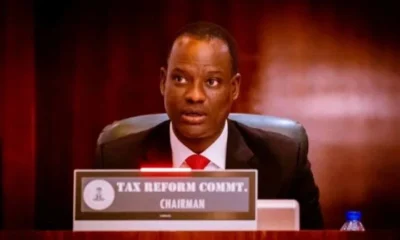
 BIG STORY3 days ago
BIG STORY3 days ago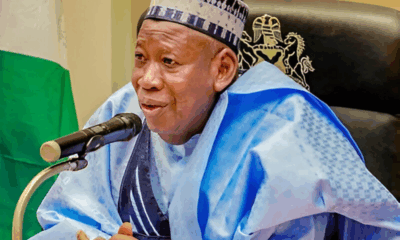
 BIG STORY3 days ago
BIG STORY3 days ago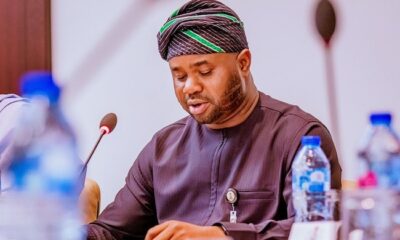
 BIG STORY4 days ago
BIG STORY4 days ago
 BIG STORY4 days ago
BIG STORY4 days ago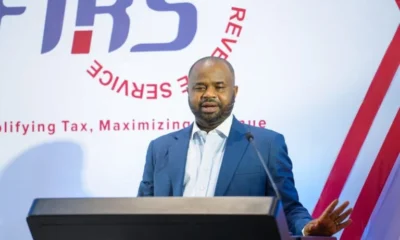
 BIG STORY4 days ago
BIG STORY4 days ago
 BIG STORY3 days ago
BIG STORY3 days ago









